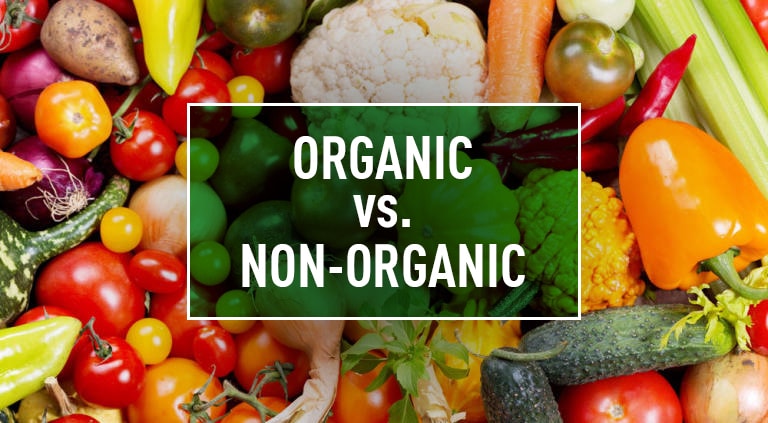You see those organically grown foods that definitely look brighter and better, but cost more than the ‘regular’ non-organic foods. What do you do? Spend a bit extra and go for organic, or stick to the regular, wondering what’s the big deal anyway?
With so many brands coming up with ‘organic’ foods, do you really know what’s good for you, or have you been tagging along with the organic trail just because everyone seems to be doing so? Here’s all you need to know about organic vs. non-organic.
 (Image Source: Pixabay)
(Image Source: Pixabay)
What’s the difference?
The main difference between organic and non-organic food is in the way they are produced. Organic food uses less pesticides and fertilizers. If at all required, the pesticides used are the ones that have specifically been approved for producing organic food. Organic foods also do not involve the use of genetically modified organisms, any form of growth hormones, antibiotics or radiation energy that helps to preserve food for longer. These are generally used in regular food production methods, which is the non-organic food production.
Are organic foods really healthier than non-organic?
This is not clear enough, but some studies do suggest that the amount of omega-3 fatty acids found in organic meats and dairy is almost 50 percent higher than that found in the non-organic ones. On the other hand, the amount of omega-3 fatty acids found in organic dairy or meat is marginally lower than what is naturally found in salmon. Another study also suggested that organic vegetables such as carrots contain a much higher amount of antioxidants, flavonols and similarly healthy compounds as compared to the non-organic ones.
 (Image Source: Pixabay)
(Image Source: Pixabay)
What about the cost and availability?
Yes, this is a deciding factor when it comes to everyday shopping. Organic foods cost significantly more than non-organic produce, and are often not available everywhere. On the other hand, ‘regular’ produce is seasonal, and can easily be found at your local sabzi wala, the food store at the mall or at a nearby mandi. Also, as these are grown closer home, they often tend to be fresher and more flavourful.
The debate goes on, and eventually, you will have to take a call on what you really want to eat, organic or non-organic. While promoters of organic food do maintain that these are significantly healthier, the much-needed scientific evidence is still missing.
So whether you choose to go for organic or non-organic, make sure to include lots of colourful vegetables and fruits in your daily diet to get all the required nutrients.














